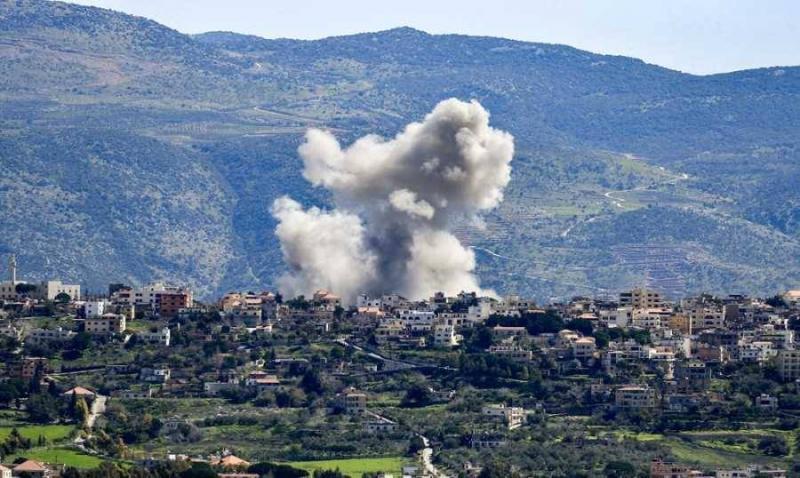Hezbollah has introduced new weapons to support Gaza, demonstrating a shift from a defensive to an offensive stance, whether through an electric-powered suicide drone and long-range artillery or through threats issued by the party's Secretary-General Hassan Nasrallah to target previously unstruck Israeli settlements. Nasrallah stated that the threat of war has not intimidated them for the past 10 months when Israel was at its strongest, and that the enemy’s continued targeting of civilians will push the resistance to strike new settlements previously untouched.
Nasrallah's threats follow closely after an Israeli air raid that destroyed residential homes in the town of Al-Tout in Southern Lebanon, resulting in the deaths of three children. A source close to the party indicated that Nasrallah's threats are serious and are not merely psychological warfare. The source confirmed to "Asharq Al-Awsat" that the party has begun to enhance its military operations and update its targets against Israeli sites in Northern occupied Palestine. They noted that the Secretary-General's remarks about targeting settlements establish new criteria for effective and decisive deterrence, rather than merely considering potential Israeli retaliation.
The source emphasized that Israel will pay a high price and face punishment for its ongoing crimes, including the killing of innocent civilians in Lebanon. Israel announced that Hezbollah employed a new suicide drone model (Shahed 101), which was recently used in an attack on the Kibbutz Kduri military base, located four kilometers east of the Nahariya settlement in Northern Israel, resulting in the death of officer Valery Shabanov. The Israeli military reported that the drone operates with an electric motor, allowing for longer flight durations, and is characterized by being quieter, hence dubbed the "silent drone," which operates with a battery-powered engine that produces minimal noise on approach and is difficult to detect and intercept by radar.
Hezbollah also announced the introduction of a new field artillery piece into the conflict. The source close to the party stated that the Shahed 101 drone is one of the strengths held by the resistance in Lebanon, but it is certainly not included in the strategic deterrent arsenal, which has not yet been deployed, as it will alter the field equations on the ground. They considered that the resistance is wary of Israel launching a wide war and opening new fronts, as Israel seems unable to handle the repercussions. Yet, they also acknowledge the potential for Benjamin Netanyahu's government to engage in an adventure that might lead to a regional war, involving all resistance factions at its core.
In parallel with the Israeli escalation, Hezbollah has no choice but to respond with painful operations, according to security and military expert Brigadier-General Najib Malek, who pointed out that Israel's continued aggression, from Southern Lebanon into Syrian territory, and the assassination of Hezbollah leaders will prompt a response from the party, which is still adhering to what is termed "the rules of engagement," utilizing short-range weapons. Malek told "Asharq Al-Awsat": "There is no doubt that Hezbollah has surprised on the battlefield when it employed Katyusha rockets to distract the Iron Dome system, managing to pinpoint its locations and render most of its operations ineffective through strikes."
Malek stressed that the Lebanese front represents the spearhead of the resistance axis and its command center. He added: “When Nasrallah continuously announces surprises on the battlefield, it implies the presence of non-Lebanese elements leading the operations, potentially advisory figures.” He noted that despite Israel's assassinations of operational leaders in the party, this has not diminished its strong presence on the front and does not negate the possibility of transitioning from a defensive to an offensive strategy via the Radwan forces.
The implementation of Hezbollah's threats to target new settlements does not necessarily mean a shift to a wide war. The party has previously bombarded locations and facilities deep within Israel outside established engagement rules, which has not led to a large-scale escalation. Military and security expert Brigadier-General Malek estimates that opening the Lebanese-Israeli front does not depend solely on one operation or airstrike but rather awaits the green light from the United States. He emphasized that the American administration has so far succeeded in restraining Netanyahu and his government, as this administration is currently promoting the idea of integrating Israel into the region under a political settlement in preparation, rather than igniting a war. Therefore, according to "Asharq Al-Awsat," the timing for a wide war has not yet arrived.




